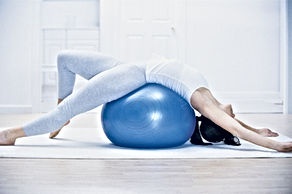
Pilates & Diet
Diet
Recent evidence suggests that good nutrition is essential for our mental health and that a number of mental health conditions may be influenced by dietary factors.
One of the most obvious, yet under-recognised factors in the development of major trends in mental health is the role of nutrition.
The body of evidence linking diet and mental health is growing at a rapid pace.
As well as its impact on short and long-term mental health, the evidence indicates that food plays an important contributing role in the development, management and prevention of specific mental health problems such as depression, schizophrenia, attention deficit hyperactivity disorder, and Alzheimer’s disease.
Nearly two thirds of those who do not report daily mental health problems eat fresh fruit or fruit juice every day, compared with less than half of those who do report daily mental health problems.
This pattern is similar for fresh vegetables and salad. Those who report some level of mental health problem also eat fewer healthy foods (fresh fruit and vegetables, organic foods and meals made from scratch) and more unhealthy foods (chips and crisps, chocolate, ready meals and takeaways).
A balanced mood and feelings of wellbeing can be protected by ensuring that our diet provides adequate amounts of complex carbohydrates, essential fats, amino acids, vitamins and minerals and water.
While a healthy diet can help recovery, it should sit alongside other treatments recommended by your doctor.
Exercise leads to the release of endorphins – feel-good chemicals in the brain that help us to relax and to feel happy.
Exercise is particularly important for people with depression as it also gives structure and purpose to the day. Outdoor exercise that exposes us to sunlight is especially valuable as it affects the pineal gland and directly boosts mood.
Exercise has some other advantages if you are trying to control your weight. For example, the more you exercise, the less you need to cut down on your calorie intake to control your weight.
It is also beneficial for heart health and it ensures that you replace fat with muscle, resulting in a more toned body.
Exercise also prevents bone mass loss and the increased risk of osteoporosis that can occur if you diet but don’t exercise.
There is no need to join a gym – walking is the easiest, cheapest and best form of exercise and it can be built up as your fitness level increases.
Swimming is good for people with joint problems who find weight-bearing exercise difficult.
Cycling is also good. Whatever kind of exercise you choose, start with 20 minutes at least three times a week and increase this as your fitness improves.
The above article is from
http://www.mentalhealthireland.ie/a-to-z/diet/
Pilates and Mental Health
Pilates and mental health? Yes, we can help! As instructors we often work with clients in some form of recovery, usually from a physical injury or condition.
The results that gentle activity makes available to these participants – peace, alignment, strength, vitality and fun, could be highly beneficial to people in vulnerable situations.
We hear a lot about how Yoga can help with wellbeing and mental health but what about Pilates?
Surely is has just the same potential to teach profound body awareness to those living too much in their own heads, yes?
Well, over a year ago I began working with a homeless charity in East London who provided housing for vulnerable people.
Within this, support for mental health and addiction issues were offered in order to help individuals to re-join the community.
Amongst those staying at this 24 bed hostel, many residents had been there for a long time and would continue to remain there but for some, it was a transitional place.
Schizophrenia and OCD were just some of the mental health issues that were the everyday norm for those residing at the hostel.
I approached this hostel with the offer to teach a weekly class that could provide breath awareness, standing mobility, balance and basic core work (often chair based).
I won’t lie to you, – I was nervous; Nervous about what to teach, how to teach it, how to engage them- just about everything.
As instructors, we can all become quite introverted and self-critical but this was another level of analysing my teaching style and ability- I didn’t know what to expect or how people would react to me.
However, as with most new classes we teach, it’s just a case of biting the bullet, trusting your instincts and being confident in your ability to teach a safe, effective class.
Since this initial class over a year ago, I have worked with a small group of regular attendees on a weekly basis. At first I kept the class short (35 minutes) but the participants were keen to extend this- each class then became an hour long.
This class became the highlight of my week and it’s quite possibly one of the best things I’ve ever been involved in.
Seeing the profound changes from the very first session up to now has been incredible. The concentration levels of the group and the calmness they have compared to the start has really compacted how beneficial the right form of physical activity can be.
In my opinion- there should be more things like this, accessible to everyone, everywhere.
Because of this belief, I’m now due to start a class for addicts at a different hostel in South London. Again, I’m nervous because now I’m challenging myself to work with a different set of behaviour patterns.
However, I’m excited too and I want to share these teaching experiences with you, particularly if it’s something you want to do too.
Check out my next blog to see how I get on!
The above article is from
http://www.pilatestreemagazine.com/pilates-and-mental-health/
For further information, please do not hesitate in contact us.



